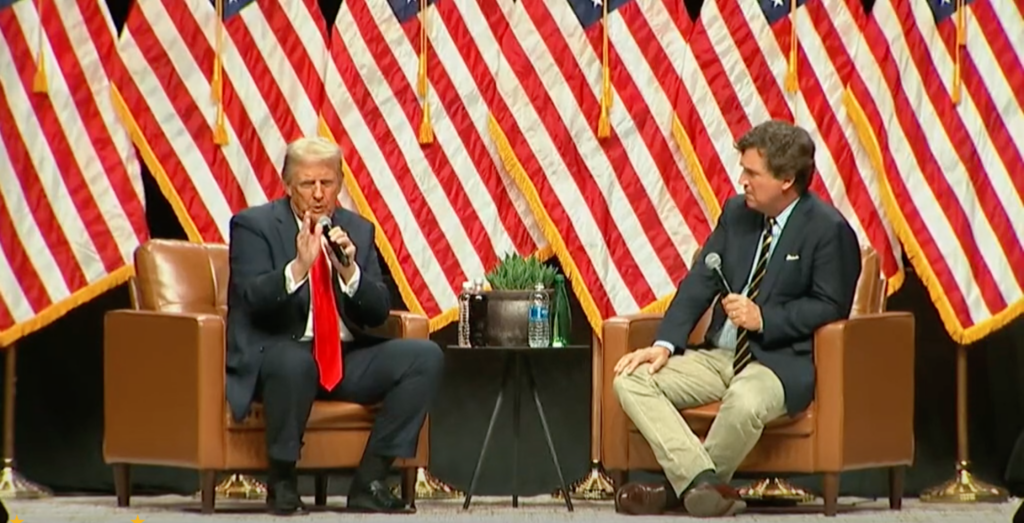Mitch McConnell’s legacy marked by deepening GOP divide
Two Contrasting Views of Mitch McConnell’s Legacy
In the wake of Mitch McConnell’s announcement that he would step down as minority leader, two distinct narratives emerged about his legacy. On one side, McConnell was hailed as a stalwart of conservative leadership, having spent 17 years as the top Republican in the Senate. His allies praised his role in transforming the federal courts and his unwavering defense of the Reagan doctrine of ”peace through strength.”
However, there were also conservatives who taunted McConnell, accusing him of being a puppet of the Democratic Party and selling out to corporate interests. The House Freedom Caucus even sarcastically extended their sympathies to their “Co-Majority Leader” in the Senate.
McConnell’s decision to step down was met with disdain from Democrats as well. They still harbor resentment over his refusal to consider President Obama’s Supreme Court nominee, which ultimately led to a conservative reshaping of the Court. McConnell’s defense of the filibuster has also frustrated Democratic efforts to pass progressive legislation.
But McConnell’s departure has exposed a growing divide within the Republican Party, fueled by the anti-establishment fervor of the Tea Party movement and the populism of former President Trump. This divide will come to a head when Republicans choose McConnell’s successor in the Senate, with conservatives expected to challenge his likely successors.
A Polarizing Figure
Part of the criticism directed at McConnell stems from his reputation for wielding power with an iron fist. His willingness to compromise with Democrats, such as on a bipartisan border deal, has drawn the ire of hard-liners who prefer a more confrontational approach.
Moreover, McConnell has faced ideological opposition from Senate conservatives who advocate for regular order and fiscal restraint. While these conservatives have been a thorn in his side, McConnell has managed to maintain his leadership position. However, his grip on the conference has become less certain in recent times.
Age and Changing Politics
McConnell’s age has raised questions about his ability to lead, especially after suffering a concussion and experiencing public speaking difficulties. Additionally, he is navigating a changing landscape in Republican politics as Trump continues to exert influence within the party.
The current point of contention is Ukraine. McConnell sees providing aid to the country as crucial in countering Russian aggression, while Trump is skeptical and believes he could resolve the conflict through negotiation. McConnell managed to pass aid for Ukraine through the Senate, but Trump’s opposition to the bill caused division within McConnell’s own party.
Furthermore, McConnell’s traditional view of neo-conservatism clashes with Trump’s “America first” foreign policy, which has become the new mainstream within the Republican Party.
A Legacy in Flux
Despite McConnell’s success in advancing conservative priorities during Trump’s presidency, the former president’s hold on the party has only grown stronger. McConnell’s retirement comes at a pivotal moment for the party, and he expressed apprehension about stepping down.
Nevertheless, McConnell vowed to continue speaking out as a rank-and-file member of the Senate, promising to disappoint his critics with enthusiasm.
What specific conservative policies did McConnell advance that supporters credit him for, and how do they believe his focus on winning at all costs reflects the will of the Republican base
Reason for McConnell’s divisive legacy is his skill in pursuing partisan goals. He was known for his strategic maneuvering and willingness to use any means necessary to achieve his objectives. This approach earned him the nickname “The Grim Reaper” for his ability to kill bills and nominations that did not align with his conservative agenda.
McConnell’s opponents argue that his tactics damaged the integrity of the Senate and hindered bipartisan cooperation. They point to his obstruction of Obama-era legislation and his refusal to hold hearings for Merrick Garland, Obama’s Supreme Court nominee, as examples of his partisan stonewalling. They believe McConnell’s focus on winning at all costs undermined democratic norms and institutions.
Supporters, on the other hand, applaud McConnell’s effectiveness in advancing conservative policies. They credit him with shepherding through significant tax cuts, deregulation measures, and the confirmation of conservative judges. McConnell’s prioritization of conservative objectives, they argue, reflects the will of the Republican base and represents a clear and principled approach to governing.
Regardless of one’s feelings about McConnell’s legacy, there is no denying his impact on American politics. His tenure as minority leader has left a lasting mark on the Senate and the country as a whole. His departure will undoubtedly shape the future of the Republican Party, as it grapples with its identity and direction in a post-Trump era.
In the end, McConnell’s legacy will be shaped by the interpretation of history. While some may hail him as a champion of conservative values and effective leader, others will view him as a symbol of partisanship and obstructionism. Only time will tell how his contributions to American politics will be remembered.
" Conservative News Daily does not always share or support the views and opinions expressed here; they are just those of the writer."




